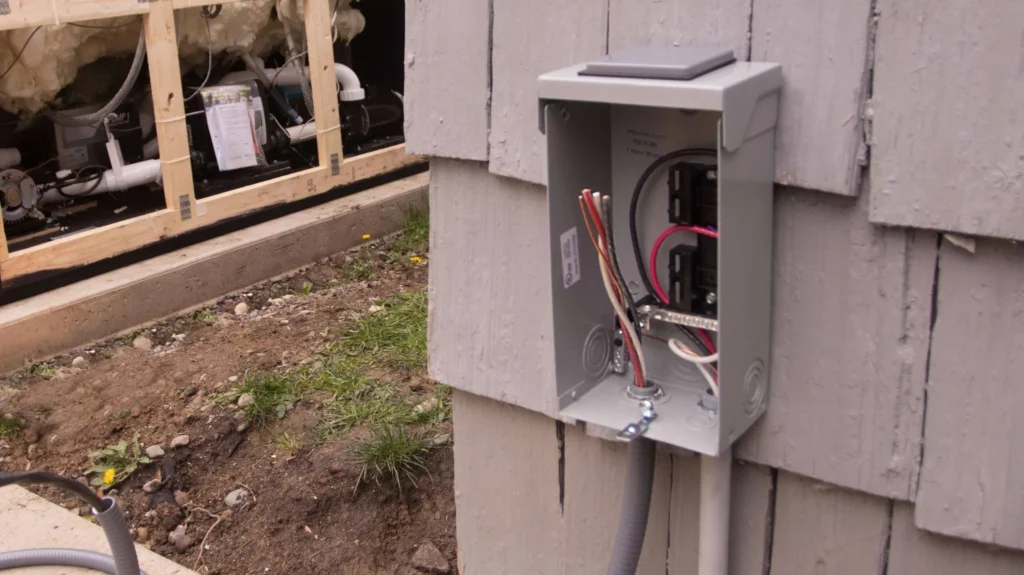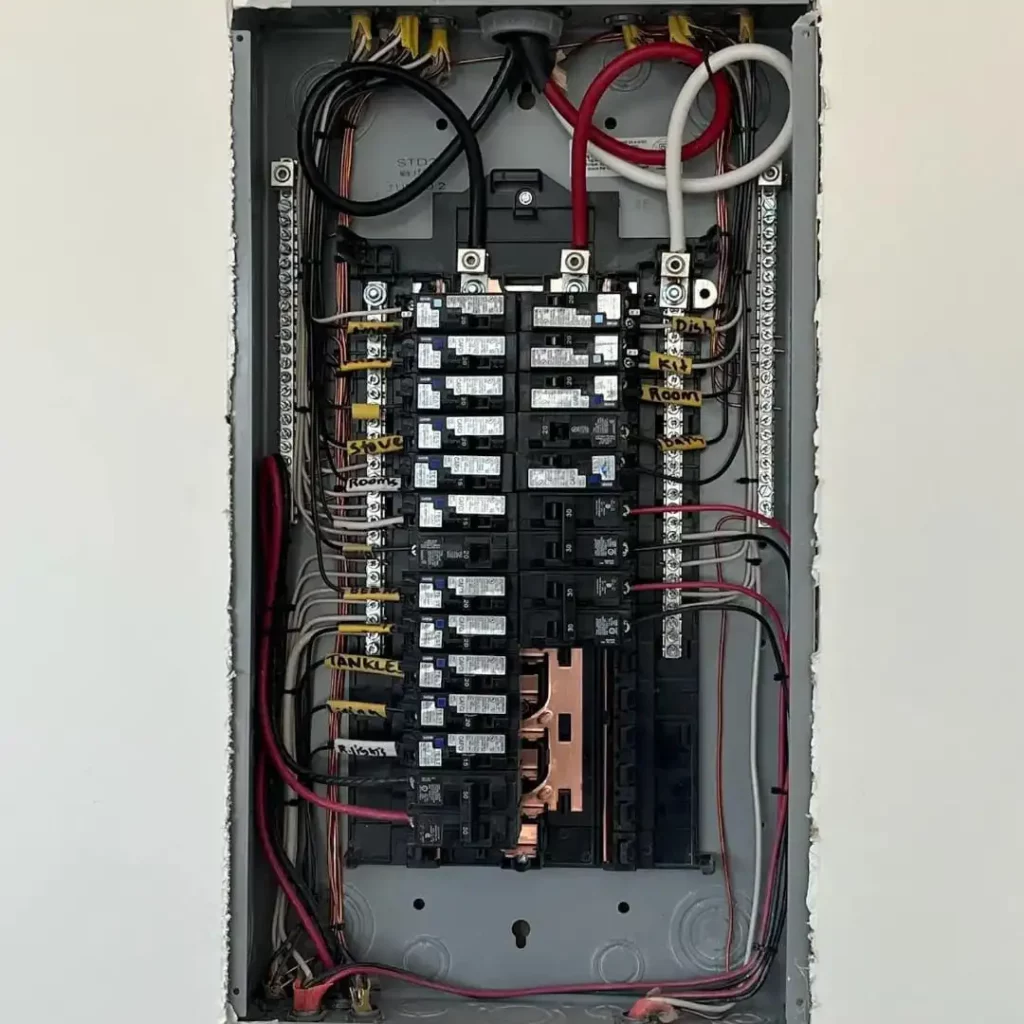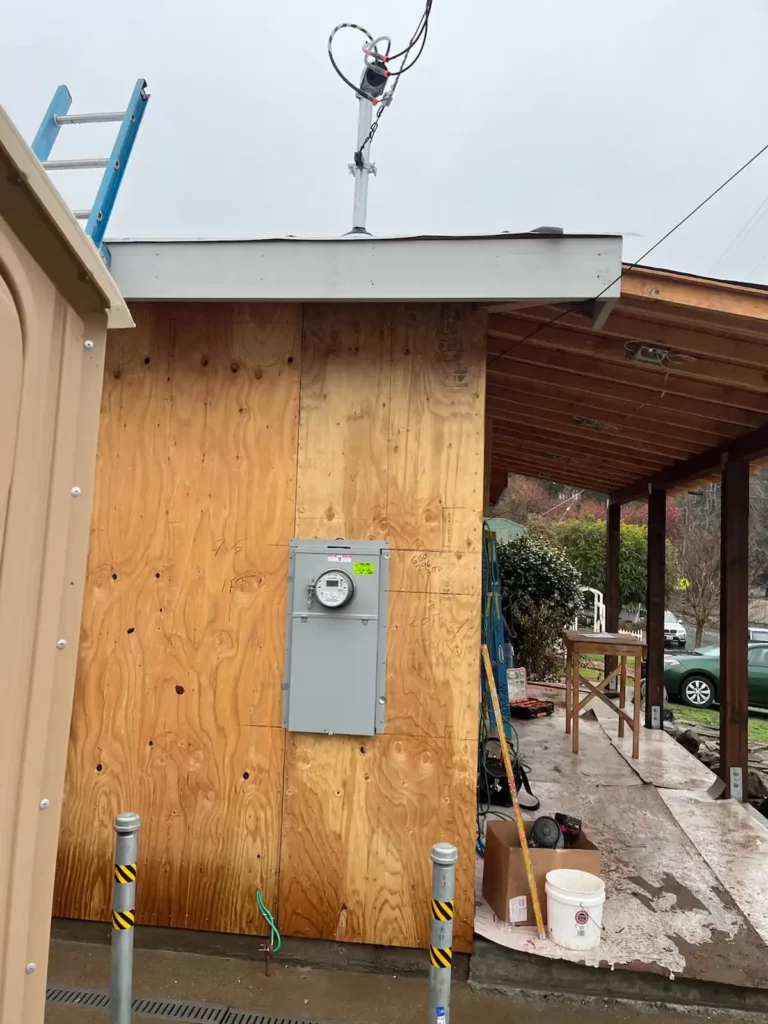The Key Differences Between Remodel and New Home Rewiring – Electrical Wiring Contractor Take
Hot take from an electrical wiring contractor! If you’re considering an electrical upgrade for your home, you may be wondering about the differences between remodel rewiring and new home wiring. While both involve installing new electrical systems, there are some key distinctions that impact the scope, complexity, and cost of each project. Read on to learn the critical differences so you can make an informed decision about your home’s electrical needs.
Why Proper Electrical Wiring Matters
Before diving into the details, it’s important to understand why proper electrical wiring really matters. Faulty or insufficient wiring is a major fire hazard and can cause electrocution. As an electrical contractor, we want to ensure every home has an electrical system that meets modern safety standards and can support today’s technology and electricity demands. Rewiring brings old electrical work up to code.
Evaluating Your Current Electrical System
The first step is always evaluating your existing electrical system. An experienced electrical contractor will inspect things like:
- The age and condition of your electrical panel and wires
- Number of circuits and their amperage
- Presence of knob and tube wiring
- Any known electrical issues or flaws
This assessment will determine whether a remodel rewire or complete new home wiring is recommended.
Have A Project In Mind?
Let's Text About Your Project
When to Choose Remodel Rewiring Contractor
Remodel rewiring makes the most sense when your home’s core electrical system is functional but needs some upgrades. Reasons you may need a rewire include:
Upgrading partial knob and tube wiring: Does your home have some remaining knob and tube wiring? Rewiring lets you update those sections selectively.
Expanding capacity: Do you need more lighting circuits, outlets, or 240V circuits added? A rewire lets you add circuits strategically.
Electrical repairs: Any fixes like replacing old wiring or worn insulation are done with a rewire.
Safety improvements: GFCIs, AFCIs, and smoke detectors can all be added seamlessly during a remodel rewire. (see blog post on Safety!)
Questions About Our Services?
Let's Connect And DiscussSupporting additions: If you’re doing an addition, the new space can be fully rewired to match the rest of your home.
So in summary, remodel rewiring is ideal for homes with an electrical system that’s operational but needing expansion or selective improvements. The existing wiring stays in place unless repairs are needed. It’s a cost-effective way to update and build upon existing electrical infrastructure.
When New Home Wiring is the Best Option
For homes with extremely outdated, insufficient, or dangerous electrical systems, a full new home wiring installation is often best. Situations where you should consider new wiring include:
Completely Replacing Knob and Tube Wiring
Does your home still have knob and tube wiring throughout? This obsolete type of wiring lacks safety features and sufficient capacity for modern usage. Fully replacing it is highly recommended.
Knob and tube wiring was an early standardized method of electrical wiring used in North America from about 1880 to the 1940s. It consists of separate rubber-insulated copper conductors run within wall or ceiling cavities, passing through joist and stud drill-holes via protective porcelain knob insulators. This old type of wiring does not meet modern safety standards and should always be replaced during electrical upgrades.
Upgrading Severely Outdated Electrical Systems
If your wiring is very old, perhaps original to a 50+ year old home, rewiring from scratch ensures everything is brought fully up to the latest code. Safety advances and higher capacity make this worthwhile.
Electrical codes and standards are continuously evolving to improve safety. Very old systems lack modern safety features like:
AFCIs: Arc-fault circuit interrupters shut off power in the event of dangerous arcing faults. (Learn About Safety)
GFCIs: Ground-fault circuit interrupters instantly break circuits to prevent electrocution and shocks. (Learn About Safety)
Appropriate wire gauges and circuit capacities for high power demands.
Three-wire grounded systems versus outdated two-wire.
Get In Touch!
Text Us For A Quote
Fully upgrading outdated wiring ensures your home meets modern safety and power delivery standards.
Correcting Extensive Electrical Issues
For homes with recurring tripped circuits, frequent electrical problems, or scary events like smoking outlets, a new electrical system may be the safest choice. Don’t take risks with faulty wiring!
Some examples of serious electrical issues that may warrant complete new home wiring include:
Frequent breaker tripping: This indicates excessive strain on undersized circuits.
Buzzing or warm outlets and switches: This points to loose, corroded, or damaged wiring.
Dimming or flickering lights: Can signal connections in need of replacement.
Fuses needing frequent replacement: Overloaded wires cause blown fuses.
GFCIs or AFCIs tripping: These safety devices do their job by interrupting dangerous electrical faults.
Burning smells or smoke: Serious fire hazards requiring immediate repair.
If you’re experiencing recurring electrical issues like these, a full inspection and likely a complete new home wiring job is best.
Questions About A Project?
Let's Connect!Accommodating Major Remodels or Additions
If you’ll be remodeling your entire home or doing a major addition, new wiring lets the whole electrical system be updated and sized accordingly.
Major home additions or whole-home renovations present the perfect opportunity to bring electrical systems up to date. When walls and ceilings are opened up anyways, it just makes sense to install new wiring designed for the home’s new size and layout rather than trying to make outdated wiring work. The small incremental cost is worthwhile.
Boosting Home Value
New wiring can increase your home’s value significantly. Buyers recognize and appreciate updated electrical systems that meet modern safety standards. It’s a big selling point.
Safety and function are two top priorities for home buyers shopping for a new home. New electrical wiring checks both boxes. Home inspection reports also call out outdated or insufficient electrical systems as areas of improvement. Getting ahead of this by fully updating wiring can maximize sale prices.
In summary, total new home wiring is optimal when you need to fully modernize an electrical system that’s insufficient, extremely dated, or has major issues that rewiring alone won’t fully address.

Key Differences Impact Project Scope, Complexity, and Cost
Now that we’ve covered when each wiring approach is ideal, let’s discuss how they differ in terms of project scope, complexity, and cost. Looking to understand more about the Role of A Good Electrical Contractor? Check out this blog!
Scope of Work
Remodel rewiring involves a limited scope focused only on circuits or sections getting updated. You’ll only pay to rewire the necessary areas.
New wiring encompasses your home’s entire electrical system. Everything is replaced at once, which maximizes cost but results in a completely updated system.
Project Complexity
Remodel rewiring limits complex demolition work because existing wiring stays put. The work involved depends on the specific upgrades needed.
New wiring requires removing all old wiring, which entails more demolition. Entire rooms may need walls opened up to access wiring. It’s a much more invasive and complex job.
Cost Differences
Remodel rewiring costs less since you only pay to upgrade certain circuits or sections of wiring. It’s an affordable, targeted approach.
New home wiring carries a higher price tag because it’s a whole-home electrical overhaul. While not cheap, it may be a wise investment to completely modernize outdated wiring.
In short, remodel rewiring scopes work strategically so costs are contained. New wiring maximizes costs for a complete overhaul. Discuss your budget and goals with an electrical contractor to determine which achieves your needs affordably.
Work With a Licensed, Trusted Professional
Electrical wiring is complex, high-risk work. Attempting DIY wiring can jeopardize safety and code compliance. Partnering with a qualified, licensed electrical contractor ensures:
Expertise: They have extensive training and experience with rewiring and new wiring projects.
Code compliance: Your wiring will meet the National Electrical Code standards for safety.
Efficiency: Electrical contractors have the right tools and systems to complete work quickly and correctly.
Certified materials: You’ll benefit from high-quality certified electrical products.
Don’t cut corners when it comes to home wiring. Contact a reputable electrical contracting company for affordable, reliable service on any electrical project!
Look for These Traits in an Electrical Contractor
Choosing the right electrical contractor for your project is critical. Seek out an electrical company that:
Employs fully licensed and insured electricians
Has been in business for many years with proven expertise
Specializes in both remodeling and new home wiring
Provides upfront pricing with no hidden costs
Uses only high-quality electrical wiring and components
Can explain all your wiring options clearly
Has glowing reviews and referrals from past clients
Taking the time to find a seasoned, reputable electrical contracting company pays dividends through safe, flawless wiring you can rely on for decades to come.
Key Takeaways on Electrical Rewiring vs New Wiring
Remodel rewiring selectively upgrades wiring with targeted improvements. New home wiring overhauls the entire system simultaneously.
Rewiring is ideal when electrical systems just need expansion or selective upgrades. New wiring is best for completely replacing knob and tube wiring or severely outdated systems.
Rewiring has a smaller scope focused on necessary upgrades. New wiring encompasses replacing all wiring for a whole-home overhaul.
Rewiring limits complex demolition and costs. New wiring requires more invasive work and carries a higher price tag.
Always hire a licensed, experienced electrical contractor for safe, code-compliant results.
Proper home wiring is about safety as well as supporting modern electricity needs. By understanding the key differences between rewiring and new home wiring, you can make an informed choice about the best electrical upgrade for your situation. Contact a qualified electrical contractor to discuss your options!

FAQs
Q: What is an electrical contractor?
A: An electrical contractor is a professional who specializes in the installation, maintenance, and repair of electrical systems in residential, commercial, and industrial buildings.
Q: What does a low voltage wiring contractor do?
A: A low voltage wiring contractor is responsible for installing and maintaining low voltage systems, such as structured cabling, voice and data cabling, and other low voltage connectivity solutions.
Q: How do I choose the best low voltage wiring contractor?
A: When choosing a low voltage wiring contractor, look for experience in the electrical construction industry, certifications related to low voltage systems, and positive reviews from previous clients.
Q: What is the National Electrical Contractors Association (NECA)?
A: The National Electrical Contractors Association (NECA) is a trade association that represents electrical contractors and promotes the interests of the electrical construction industry.
Q: What are the benefits of hiring a low voltage wiring contractor?
A: Hiring a low voltage wiring contractor ensures that your low voltage systems are installed correctly, integrated with other electrical systems, and provide reliable connectivity for your building’s needs.
Q: What qualifications does an electrical contractor need?
A: To become an electrical contractor, one typically needs to complete an apprenticeship program, gain experience in the field, and obtain relevant certifications or licenses.
Q: What services do electrical contractors provide?
A: Electrical contractors provide a wide range of services, including electrical system design, installation of wiring and equipment, maintenance and repair of electrical systems, and upgrades to meet safety and efficiency standards.
Q: Why should I hire a certified low voltage wiring contractor?
A: Hiring a certified low voltage wiring contractor ensures that you are working with a professional who has been trained and tested to meet industry standards for low voltage system installation and maintenance.
Q: What are the benefits of working with experienced low voltage contractors?
A: Experienced low voltage contractors have in-depth knowledge of low voltage systems, advanced troubleshooting skills, and the ability to handle complex installations or upgrades.
Q: How can electrical contractors contribute to the construction industry?
A: Electrical contractors play a crucial role in the construction industry by providing expertise in electrical system design and installation, ensuring safety and compliance with building codes and regulations.

